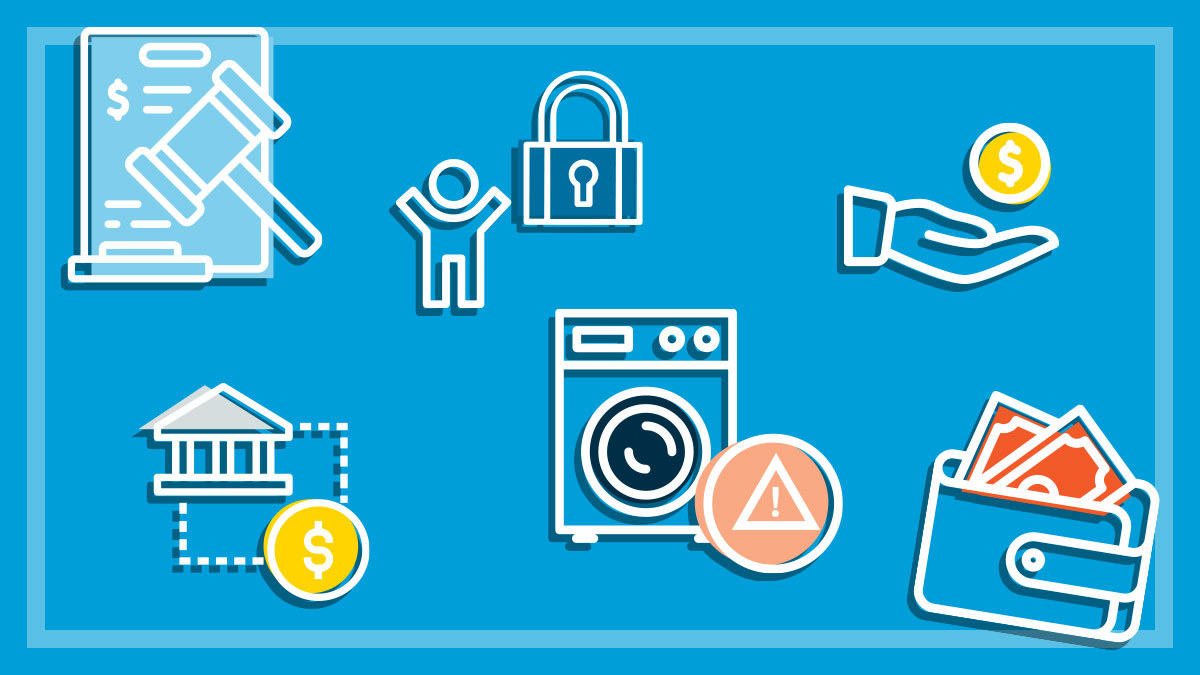Fines, product safety and refunds targeted in final consumer law report
Review recommends 19 legislative changes.
Last updated: 20 Apr 2017
Bigger fines, safer products and refund rights are the hallmarks of the final report in a review of Australian Consumer Law.
Update: As of December 2020, if a product or service has two or more minor failures, and you would not have bought the product or service if you knew the nature and extent of these failures, this can be considered a major failure. (Note: These failures don’t need to relate to the same consumer guarantee.)
The review, conducted by Consumer Affairs Australia and New Zealand,
targeted weaknesses in the legal protections safeguarding consumers by
suggesting 19 legislative changes.
Among the key changes was a call for penalties that’ll make breaching the
law costly for big businesses.
Currently the maximum penalty a business can be fined per breach is $1.1
million, but the report recommends bringing these up to a minimum fine of
$10 million or three times as much money as the business made from the
breach.
In instances where the value of a breach can’t be calculated, the fine
will be 10% of the money earned by the company in the previous financial
year.
The increased fines will stop businesses believing they can profit from
breaching the law, says Erin Turner, acting director of content, campaigns and communications at CHOICE.
“Aligning penalties with any benefit a company receives from breaking the
law is an elegant solution to this problem.
“Companies like Reckitt Benckiser, who sell Nurofen, gained about $45
million in revenue from products which were found to breach the consumer
law. Small penalties in the face of this kind of windfall are grossly
inadequate.”
Fines against individuals were also raised from $220,000 to $500,000 for a
breach.
Businesses will face these hardened penalties for failing to sell safe
products, which was another major focus of the review.
The report described the system used to make sure Australian products are safe as “outdated”, noting
dangerous products are only identified after – and not before – they have
gone on sale.
“Products that prove to pose a risk to health and safety are then removed
from the market, usually…after a safety incident has occurred,” read the
report.
“This would generally involve serious injury, illness or death of a
consumer, or destruction of property.”
Recommendations made to consumer ministers include clearly holding
businesses liable for the safety of their products by writing a safety
clause into Australian Consumer Law.
The current recall process would be overhauled to ensure dangerous products
are removed from the market as quickly as possible.
Companies will have to meet “sensible, basic standards” in safety, says
CHOICE’s Turner.
“At the moment product safety is an afterthought – businesses only have to
act after something has gone horribly wrong. The report today calls for a general safety provision, essentially a new
rule that means businesses won’t be able to sell unsafe junk.”
Consumer electronics, electrical appliances, household goods, food and
clothing were recognised as being the most commonly involved in product
recalls.
The review tended to one of the most contentious gripes faced by consumers
today regarding refunds.
Consumers currently aren’t entitled to a refund if a product has a series
of faults qualified as ‘minor’ under the law.
But the review recommends a change to the law that would entitle a right to
refund when a product develops a number of minor faults within a short
period of time.
The change will resonate with new and recent car buyers tired of dealing
with repeat faults, says Turner.
“The review…has found we need to lift the standards in the law to deal
with common consumer concerns. For example, it should be much clearer that
consumers deserve a refund when a product has lots of small problems, like
with a lemon car.”
The review marks five years since Australian Consumer Law came into effect.
Another review has been commissioned in four years in 2021.
Related
Tony Ibrahim is an award-winning journalist who worked at CHOICE from 2016 to 2018.
He investigated and reported news stories that spanned a range of consumer issues and took pride in shining a light on the injustices faced by everyday people. He was responsible for breaking national stories on fatal Takata airbags, contaminated fuel and more.
Prior to CHOICE, Tony was group editor of PCWorld Australia and Good Gear Guide, as well as a reporter for CRN. LinkedIn
Tony Ibrahim is an award-winning journalist who worked at CHOICE from 2016 to 2018.
He investigated and reported news stories that spanned a range of consumer issues and took pride in shining a light on the injustices faced by everyday people. He was responsible for breaking national stories on fatal Takata airbags, contaminated fuel and more.
Prior to CHOICE, Tony was group editor of PCWorld Australia and Good Gear Guide, as well as a reporter for CRN. LinkedIn






